
What Helps A Sprained Ankle Heal Faster Sprained ankle, Sprained ankle remedies, Ligament tear
Primary ligaments of ankle include (see below for details) medial. Deltoid ligament. Calcaneonavicular ligament (Spring Ligament) lateral.. acute spring ligament tear. acute trauma can occur with forceful landing on flat foot. the tibialis posterior tendon is usually normal. Card 1 of 1. 1
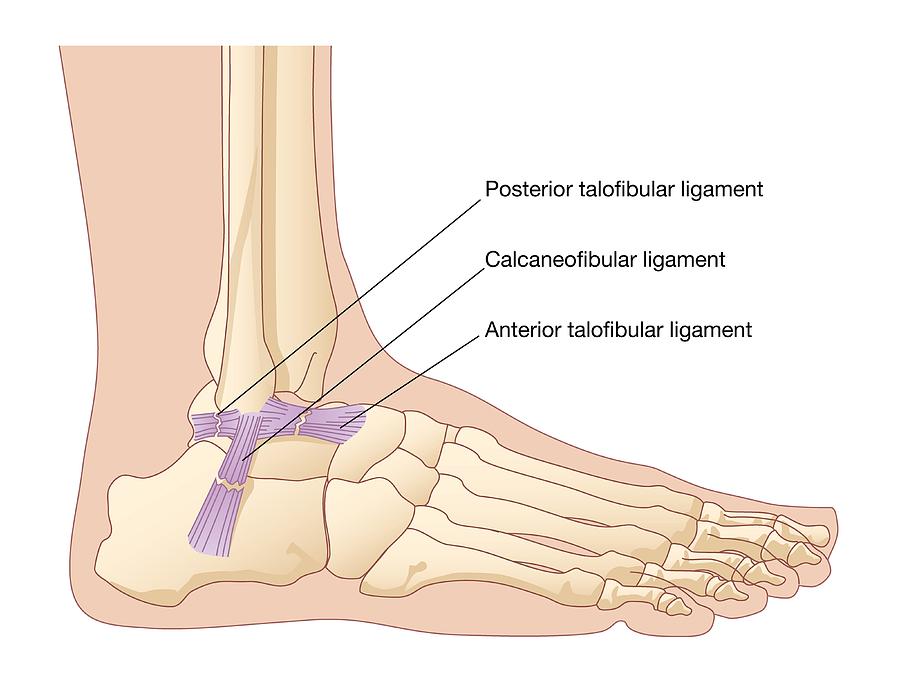
Torn Ankle Ligaments, Artwork Photograph by Peter Gardiner
If you see signs that your ankle has torn ligaments, call Southwest Foot & Ankle in Plano at 972-805-9985, in Lewisville at 972-318-2738 or in Irving at 972-318-2655 to get help from a medical professional who focuses on ankle and foot treatment every day. Contact us.

Torn Ligament in my Ankle HubPages
A torn ligament is a painful injury that may be accompanied by swelling and bruising. Torn or stretched ligaments are also called sprains. They usually occur due to extreme force to a joint, such as with a fall or another high-impact event. Common ligament tears happen in the ankle, knee, wrist, thumb, neck, or back.

Ankle Joint Ligament InjuryTreatmentRecovery PeriodExercisesCausesTypesSymptoms
Ankle Ligament Tear. Ligament tears in the ankle represent the more severe forms of ankle sprains (see section on ankle sprains). These often occur in high energy ankle injuries such as car accidents, falls, significant sports injuries and ankle dislocations. These may also occur with ankle fractures as well.

Pin on Good times...
A partial ligament tear produces a moderate sprain and a complete tear causes a severe sprain. Pain, a popping sound, swelling, bruising, stiffness and instability are signs of torn ankle ligaments. A severe ankle sprain typically causes severe signs, which may be similar to those seen with an ankle fracture.
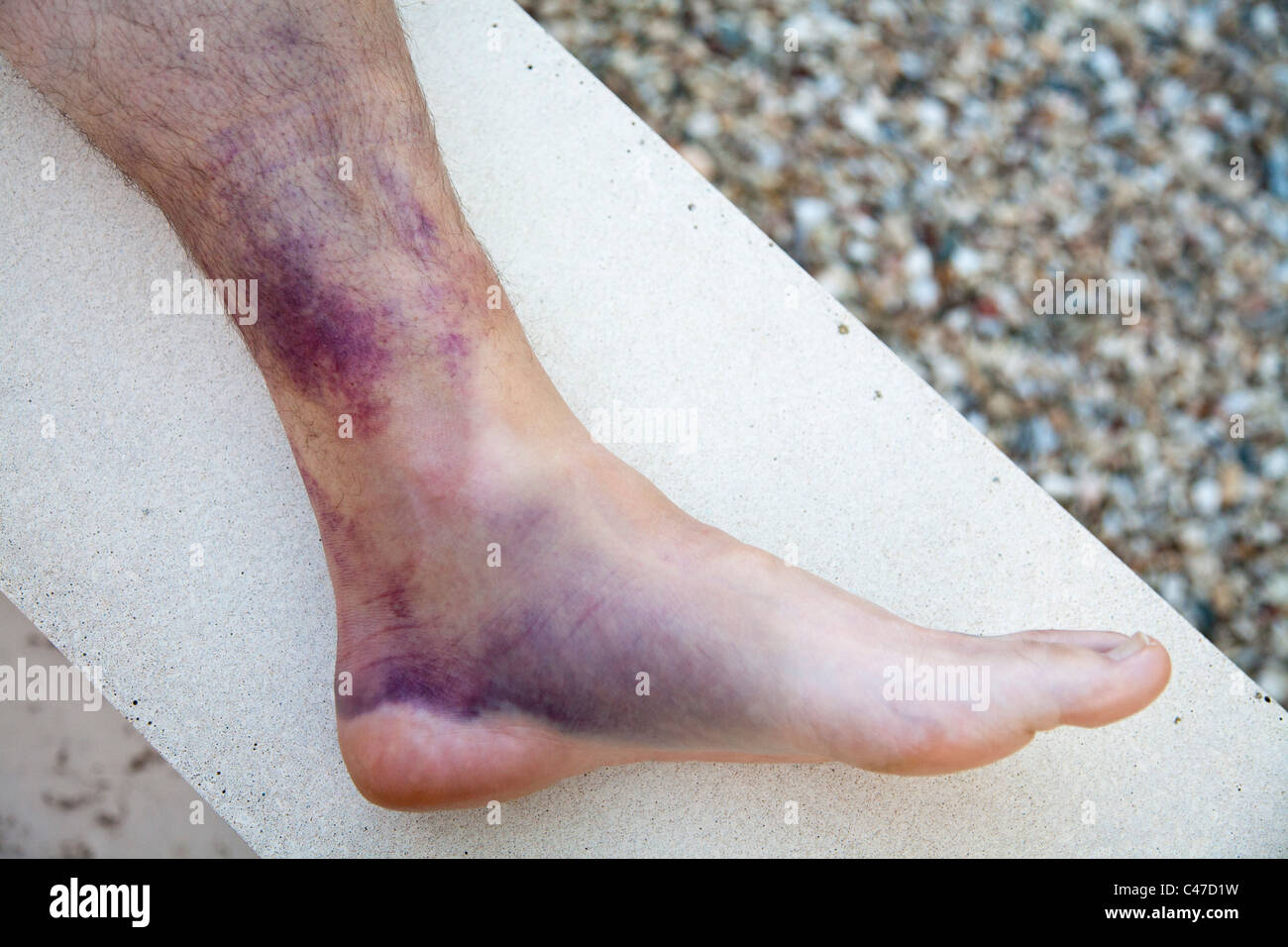
Bruised ankle injury with torn ligaments Stock Photo Alamy
Swimmer with an ankle injury, pain or accident by the pool after water sport training or exercise. Sports, fitness and woman athlete with a leg sprain, medical emergency or torn muscle after workout. torn ankle ligament stock pictures, royalty-free photos & images

Torn Ligament or Foot Tendon
The ligaments in your foot and ankle consist of the anterior talofibular ligament (ATFL) and the calcaneofibular ligament (CFL). These ligaments are instrumental in keeping your ankle and foot strong, stable and steady when you walk, jog or run. When sprains occur, the ligaments stretch beyond normal capacity and tear. Ankle sprains range from.
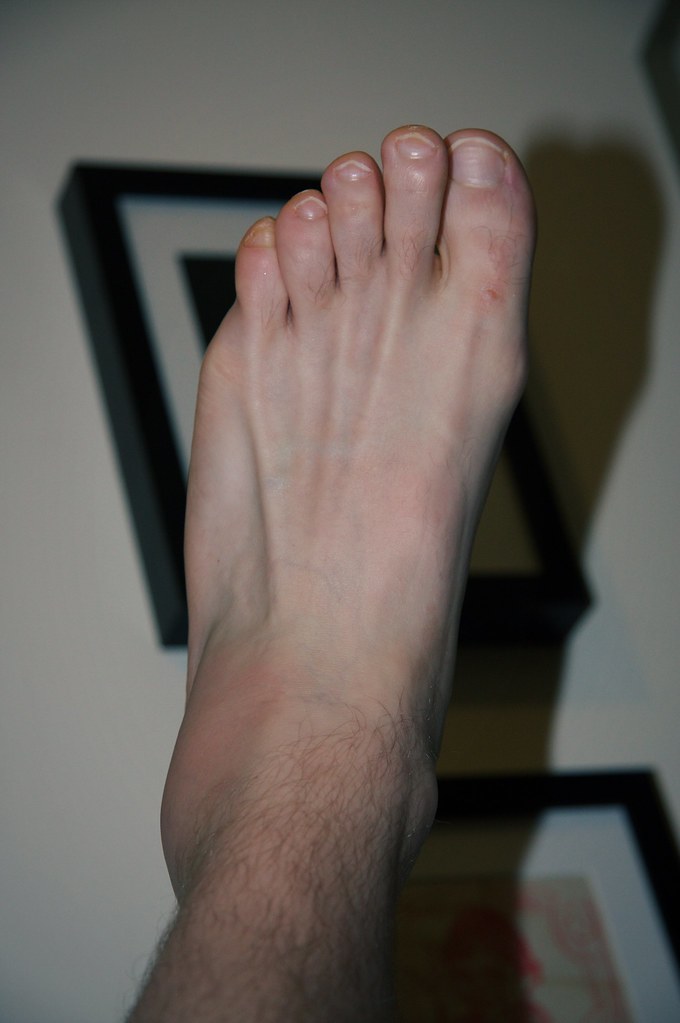
01/01/09 001 Torn Ankle Ligaments Starting the New Ye… Flickr
This can stretch or tear the tough bands of tissue (ligaments) that help hold your ankle bones together. Ligaments help stabilize joints, preventing excessive movement. A sprained ankle occurs when the ligaments are forced beyond their normal range of motion. Most sprained ankles involve injuries to the ligaments on the outer side of the ankle.
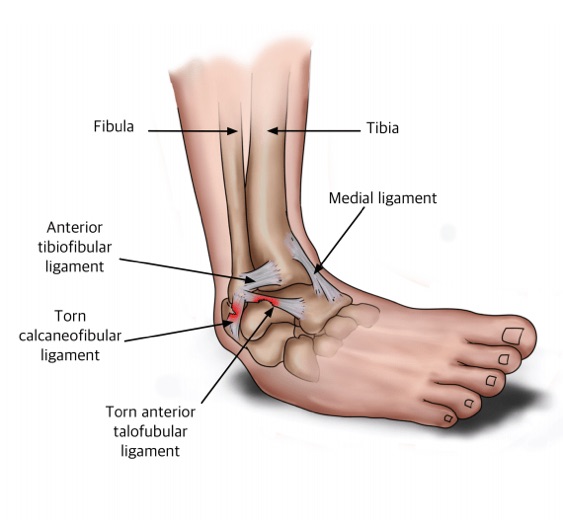
Sprained Ankle How to assess and recover from a sprained ankle.
The ligament fibers stretched slightly or there is a very small tear. Your ankle will have minor swelling and tenderness to the touch. Grade 2 (Moderate). The ligament is torn, but it isn't a complete tear. Your ankle has swelling over the injury and it hurts to move. Grade 3 (Severe). The ligament is torn completely.

ankle sprain, ATFL ligament, ankle, pain Sprained ankle, Sprain, Ankle ligaments
Lateral ankle ligament reconstruction is a surgery to tighten and firm up one or more ankle ligaments on the outside of your ankle. It's also known as the Brostrom procedure. It's most often done as an outpatient surgery, so you can go home the same day. Your ankle is a hinge joint that allows motion up and down, and from side to side. Your.

Top 5 Ankle Braces for Torn Ligaments Ligament tear, Ankle braces, Sprained ankle
This article provides a comprehensive review of the normal and injured ankle ligaments on MRI, with emphasis on the anatomy, biomechanics, and imaging features of each ligament. It also discusses the common mechanisms of injury, the classification of ligament tears, and the associated findings of ankle instability. The article is useful for radiologists, orthopedists, and sports medicine.

Pin on For my broken/Overworked Body/Soul
A partial ankle ligament tear can be treated effectively with physiotherapy. You will be given exercises to help build up the muscles around your ankle. This will improve stability and help prevent re-injury. A full tear, though, will require immobilisation in an Aircast boot for three weeks.

How to Treat a Torn Ankle Ligament (with Pictures) eHow
When ligaments are torn and associated with an ankle fracture, this damage can render the ankle unstable. The deltoid ligament is found on the inner part of the ankle and provides the majority of the stability of the ankle. If the deltoid ligament is torn in association with a fracture, the ankle is generally unstable. In the ankle joint or any.

doctor.macc Ankle sprain Anatomie körper, Anatomie und physiologie, Anatomie muskeln
Mr Moyes offers injection therapy to reduce inflammation after a ligament tear. Surgery. Surgery is usually only recommended if the ligament tear has caused damage to other structures of your ankle, or has resulted in long-term instability or the risk of other conditions such as arthritis. Ligament tears can be surgically repaired by stitching.
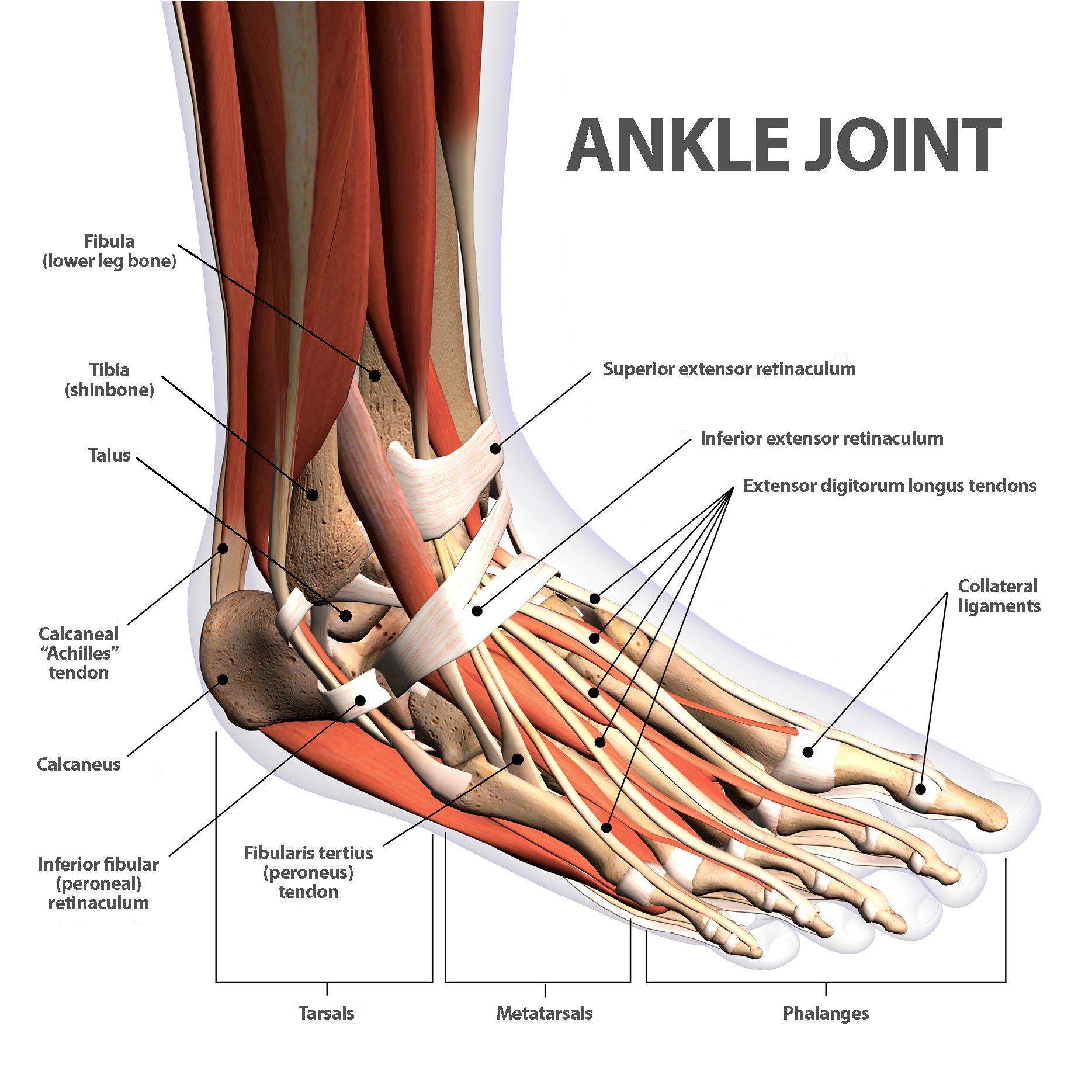
Ankle Fractures Broken Ankle Florida Orthopaedic Institute
Ankle ligaments are like cords that connect the foot bones with the lower leg bones. They stabilize the ankle joint and prevent the ankle from twisting, folding or collapsing. An ankle ligament can overstretch or tear, called a sprain. Ankle sprain is a very common injury and can range from mild to severe.

Ankle Orthopaedic Center of the Virginias
Around 90% of ankle sprains involve an inversion injury (the foot turns inward) to the anterior talofibular (ATFL) and calcaneofibular (CFL) ligaments — the lateral ligaments on the outside of the ankle.; The less common medial ankle sprain is caused by an eversion injury (the foot turns out) to the deltoid ligament on the inside of the ankle.; Sprains can range from tiny tears in the fibers.